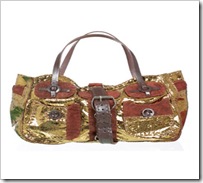Muscle strength is very important for all of our functional activities, from heavy work such as climbing stairs or a hill to fine work such as sewing or typing on a keyboard. While losing feeling in a part of the body can be more disabling, losing muscle power always has consequences for our function and our independence, especially as we get much older when our power levels decline anyhow. We may lose muscle power for a wide variety of reasons: disuse; pain; injury; disease or neurological illness. Physiotherapists are skilled at the assessment of muscle power and in progressive strengthening techniques to restore power within the patient's capacity.
The Oxford Scale is the rating system used by physiotherapists for the assessment and recording of muscle power when required. Knowledge of muscle anatomy is vital so that the joint can be positioned correctly and the tendon and muscle palpated so whether there is any muscle action can be judged. The muscle is rated on the Oxford Scale from one to five and written down as 2/5 or 4/5, at times with a plus or minus sign to show the muscle has more or less strength but not enough to go down or up the scale. The physiotherapist ensures the joint is in the optimal position to enable the muscle to function easily and for easy visualization of the tendon and muscle.
Grade 0 is no action discernable in the muscle at all, with the physiotherapist palpating the muscle belly or tendon as the patient attempts to perform the activity several times. Grade 1 is a twitch as the muscle undergoes a small contraction but is not strong enough to perform any of its specified joint movement. Grade 2 indicates a muscle strong enough to perform its designated joint movement when the force of gravity is eliminated, making it much easier to perform. The joint must be accurately positioned for this to be tested correctly. Grade 3 is a muscle strong enough to perform the joint action to the full range against gravity but with no resistance applied. An example here would be lifting the arm above the head.
If the muscle can move the joint through the full movement both against gravity and against some resistance such as bodyweight then the Oxford Scale grading is 4/5. It is a professional judgment as to the resistance to be applied for the test, and the physiotherapist will have in mind the health, age, activity and weight of the patient. If a muscle is to be graded 5/5 it must be of normal power, but as this will vary greatly between individuals the physiotherapist must make an estimation of the expected full muscle power for that particular patient. Grade 5 for a frail sick person will be very different from grade 5 for a young, fit sports person.
If the patient lifts their arm up above their head but finds it difficult to do and cannot quite get the arm fully up then the physiotherapist might record this as 3- as the grade is not fully three but it is too strong for grade 2. If some resistance can be applied by the physiotherapist but the muscle still does not seem to be of fully normal strength then the rating cannot be a 5, but rather a 4+. A muscle testing chart is used to record the physiotherapist's testing and can be used to chart progress in muscle power over time.
Physiotherapists begin muscle strengthening techniques in a position where gravity is eliminated, allowing a weak muscle to be repetitively exercised. As the patient's ability increases they can perform more functional activities of daily life which strengthens the muscles in a co-ordinated way which reflects normality. Next, resistance against muscle action is increased as muscle strength improves in response to the level of intensity of resistance and not just repetition. High intensity causes muscle fiber breakdown which repairs with increased size and power until the next intensity workout repeats the process. Progression is then moved to functional exercise with bodyweight resistance as dynamic movement is more useful.













Comments :
0 comments to “The Assessment of Muscle Strength by Physiotherapists”
Post a Comment